
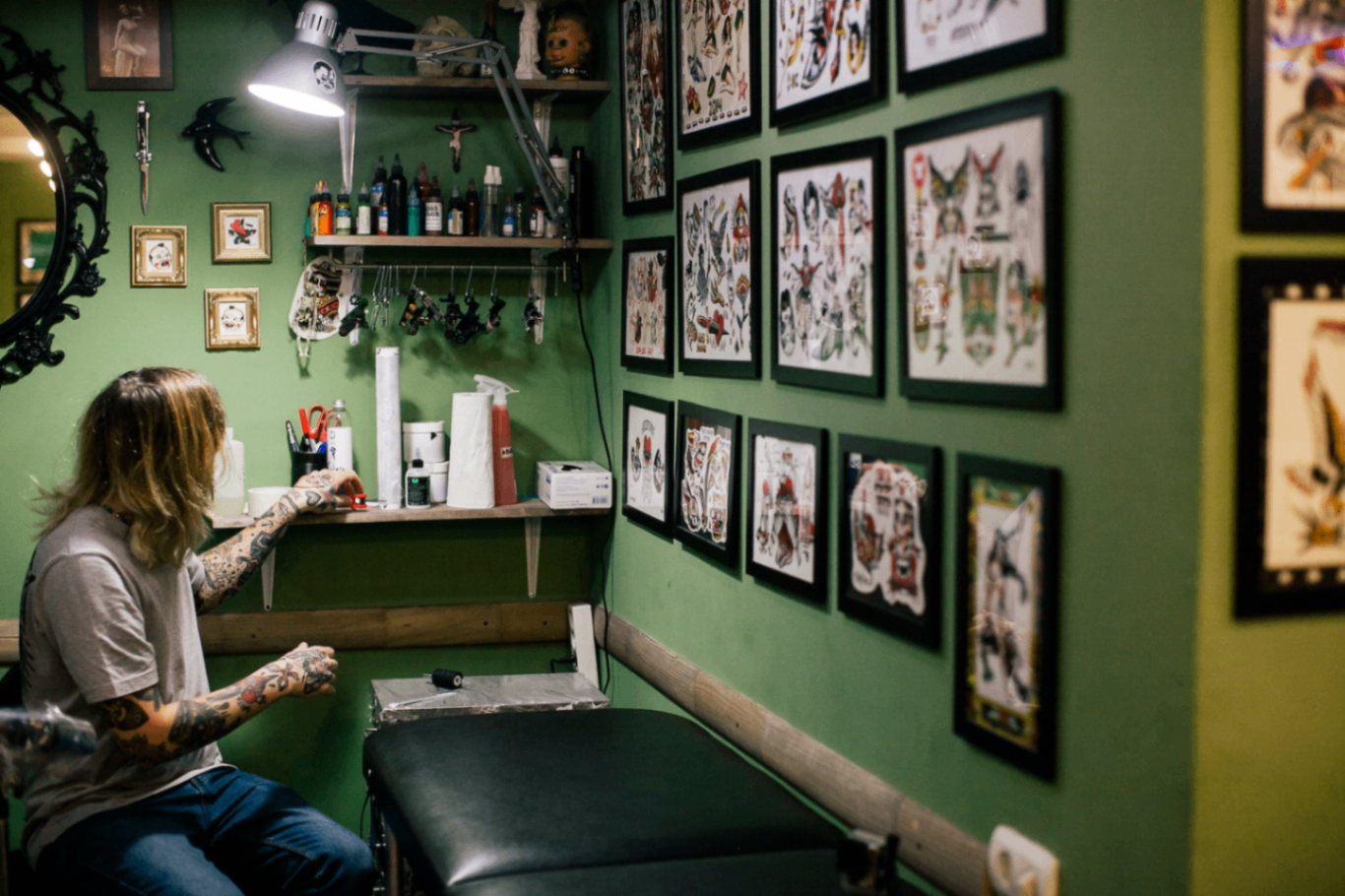
Ear Gauging
The process of gradually enlarging a pierced hole in the earlobe to accommodate larger jewelry.
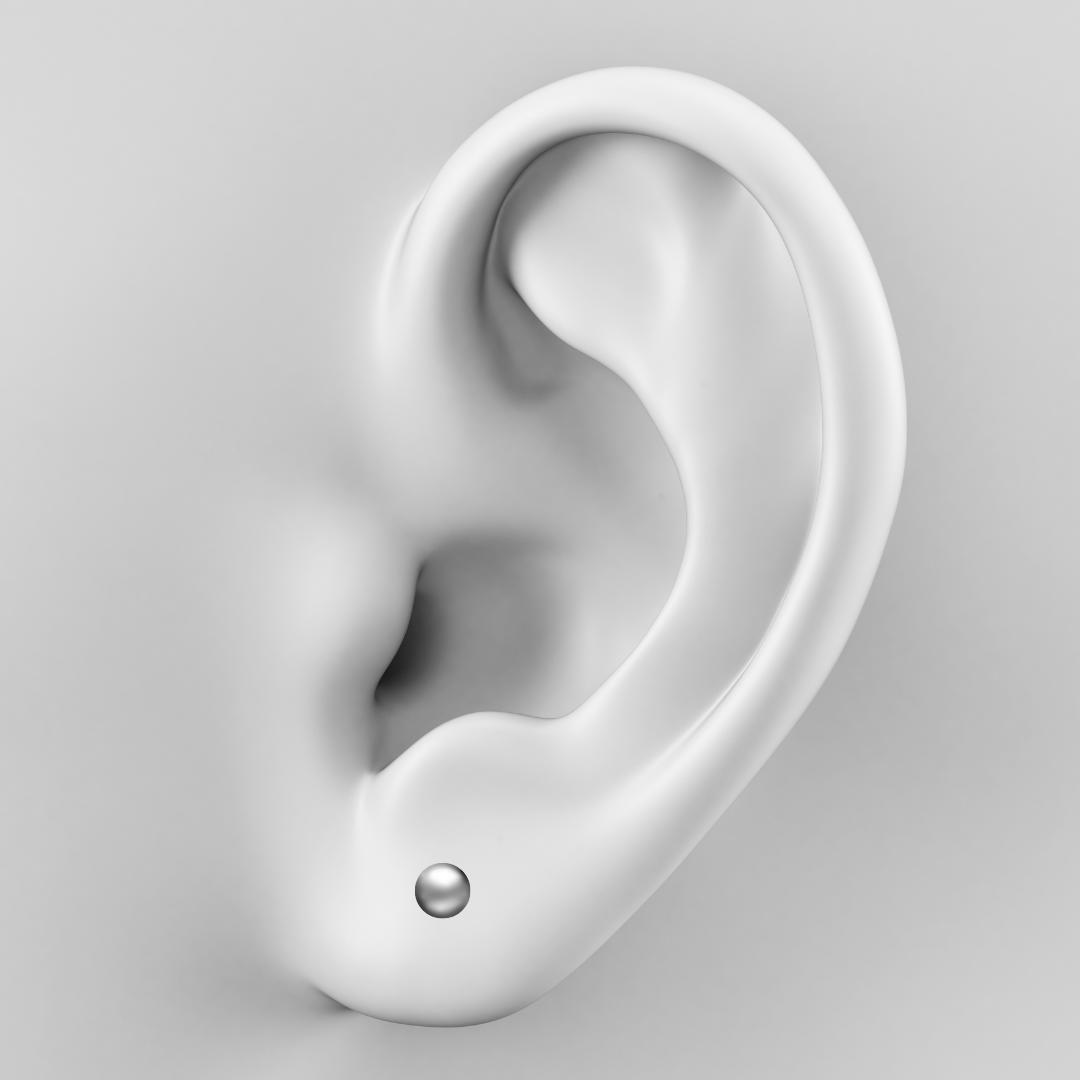
Ear Lobes
A single hole pierced front-to-back through each ear lobe.
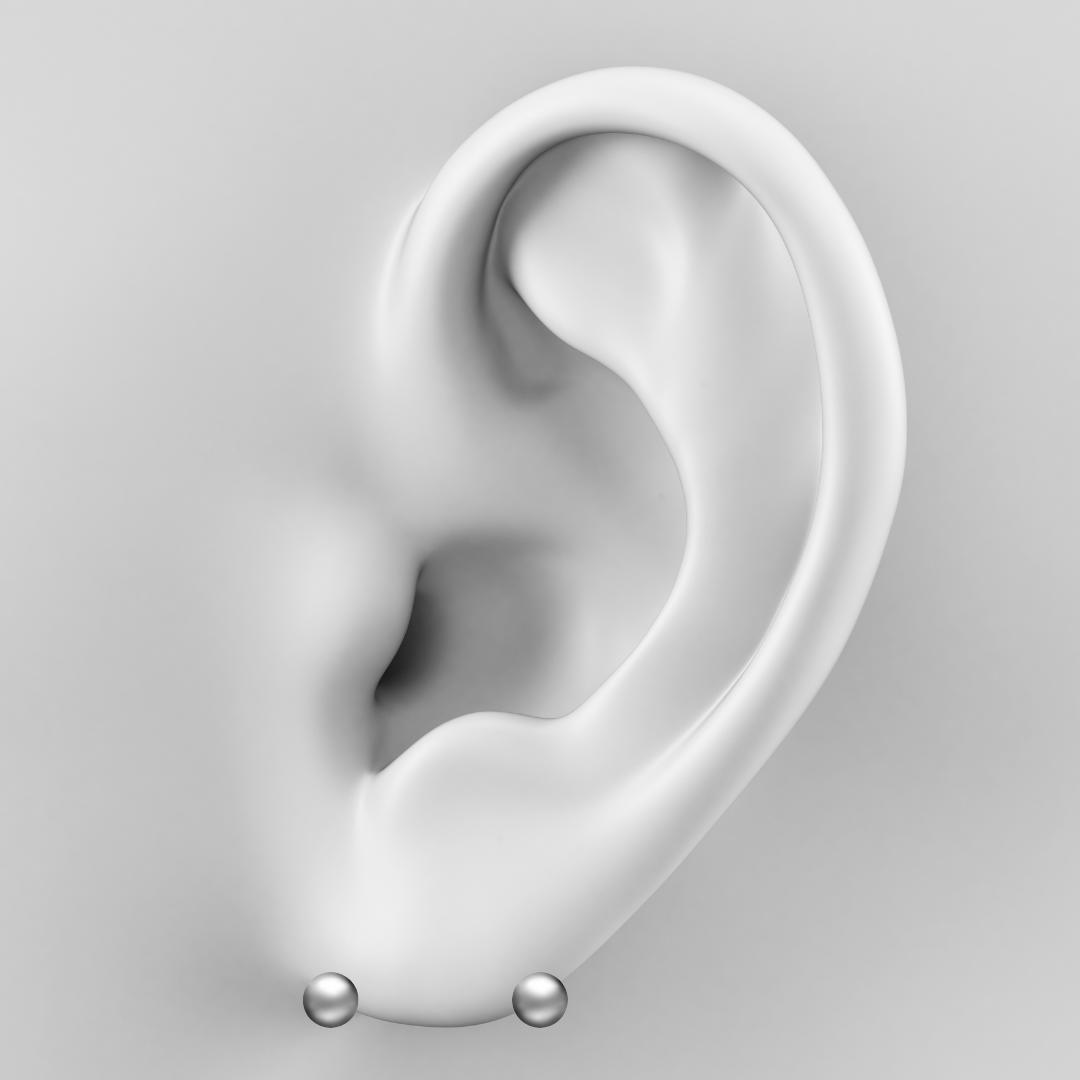
Transverse Lobe
A single hole pierced side-to-side through the ear lobe.
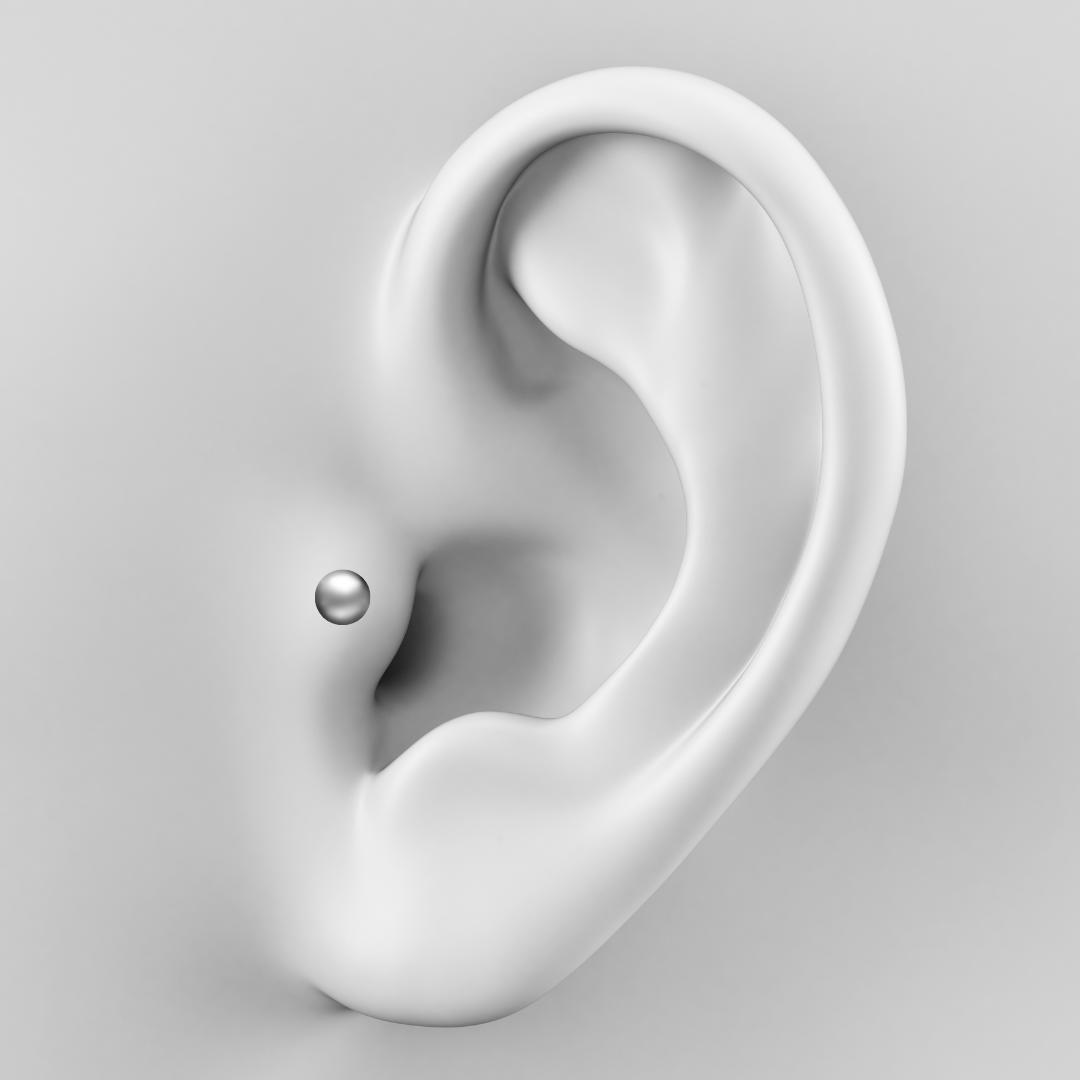
Tragus
A single hole pierced through the small area of cartilage that partially covers the opening to the ear canal.
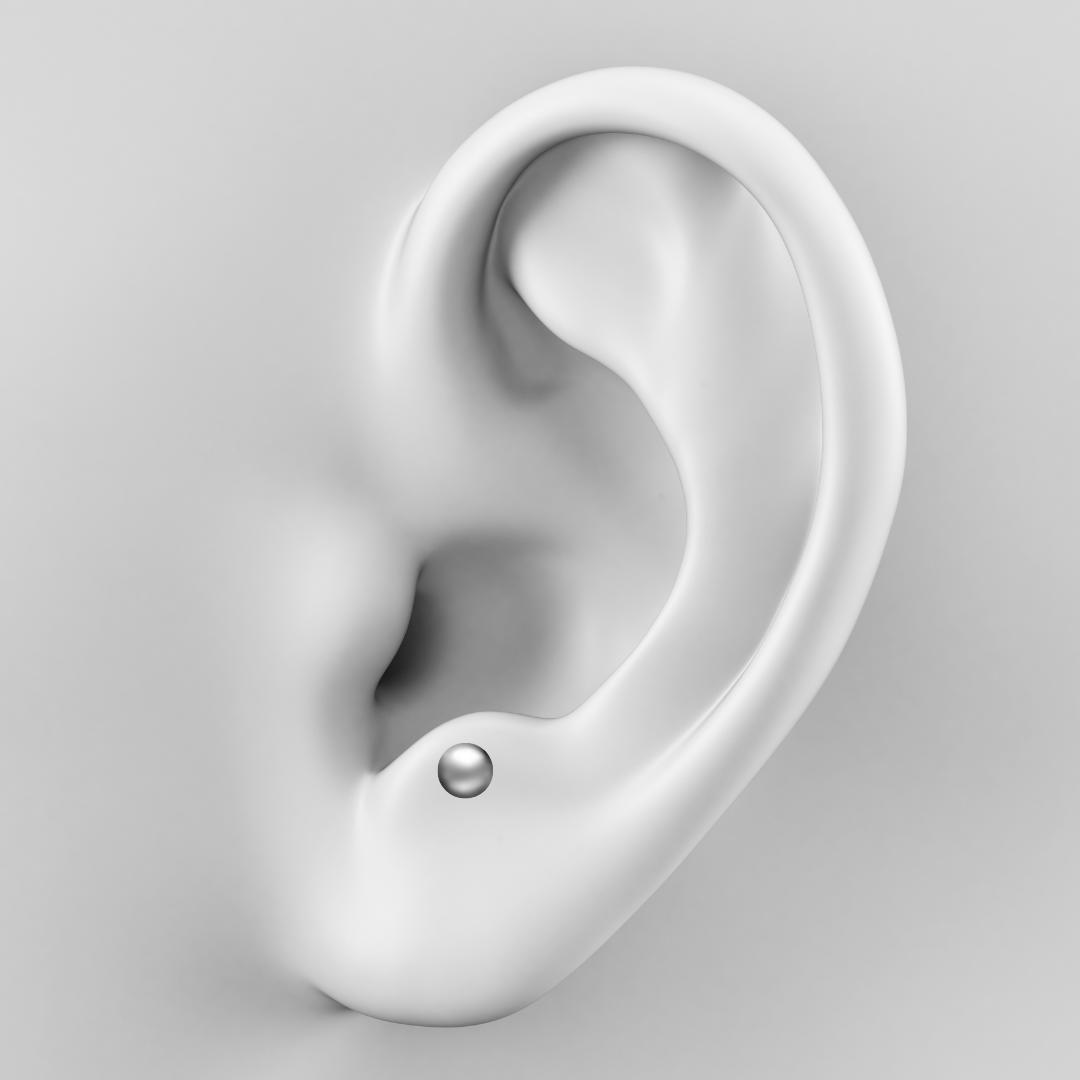
Anti-Tragus
A single hole pierced in the small, curved section of cartilage located just above the earlobe and next to the tragus.

Surface Tragus
A single vertical hole punctured through the skin in the tragus area. This technique creates a single tunnel beneath the skin's surface

Flat
A single hole pierced through the flat area of cartilage located beneath the upper rim of the ear, known as the helix.
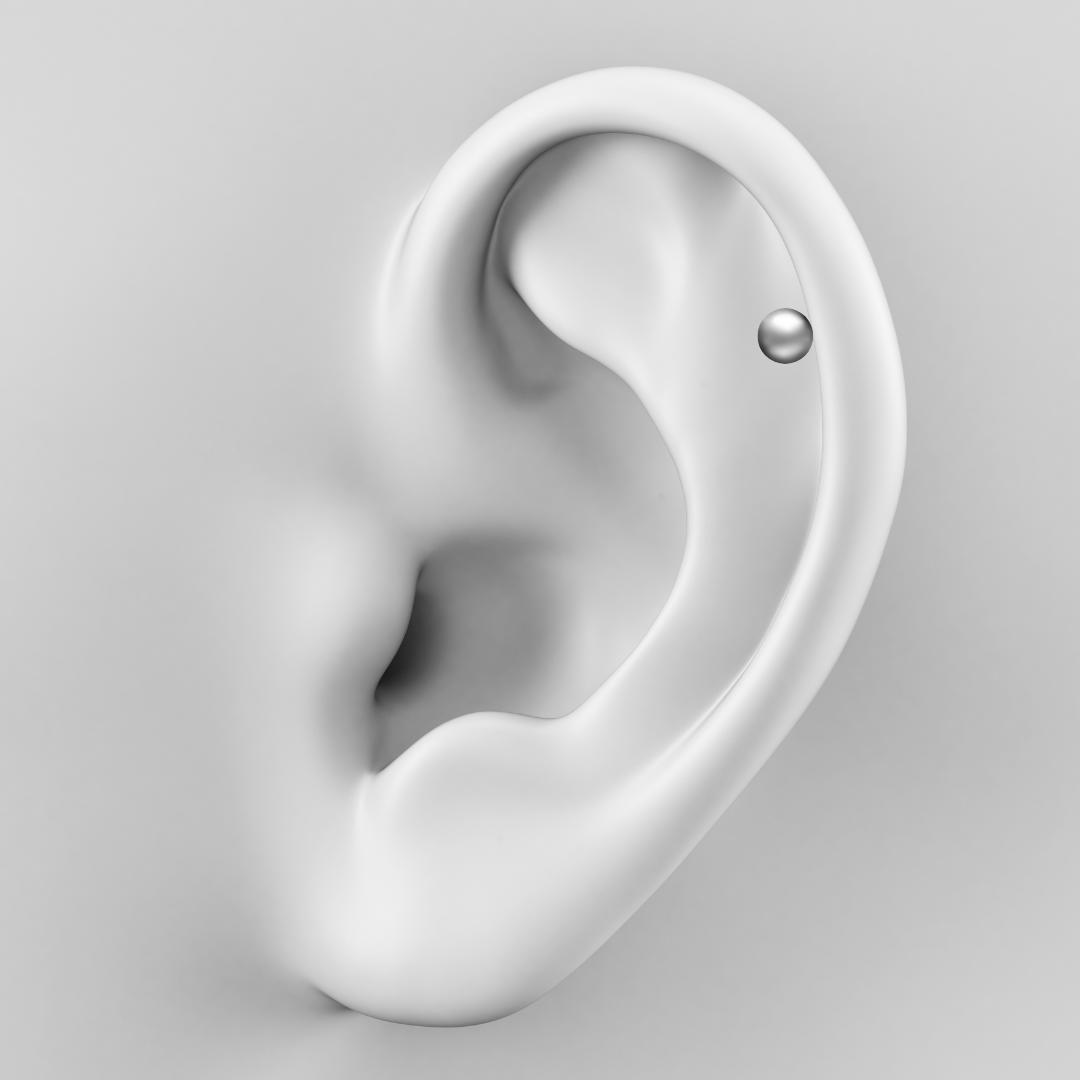
Helix
A single hole pierced through the cartilage located on the outer rim of the ear.
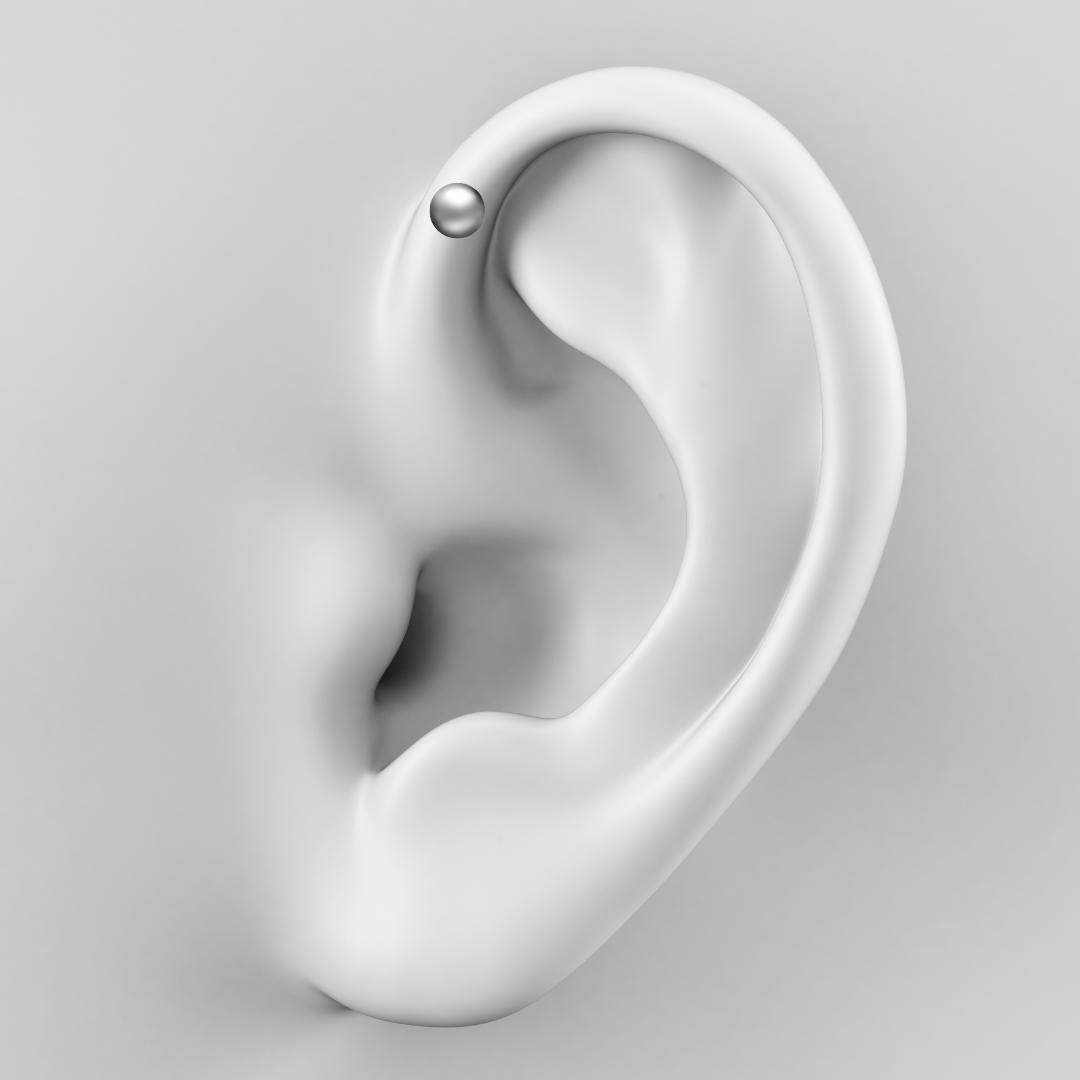
Forward Helix
A single hole pierced through the cartilage along the outer rim of the ear, just above the tragus.
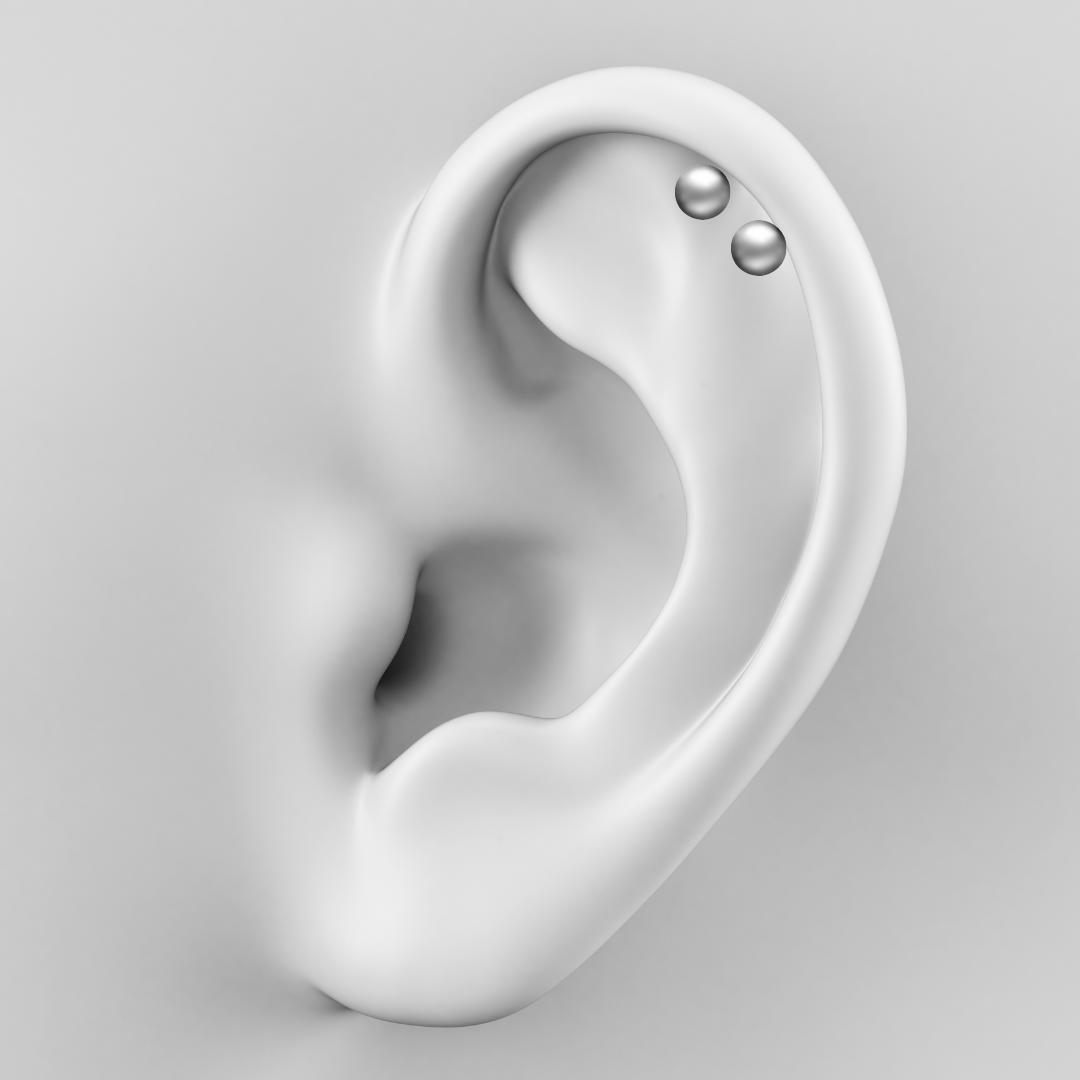
Double Helix
Two holes pierced through the cartilage located on the outer rim of the ear.
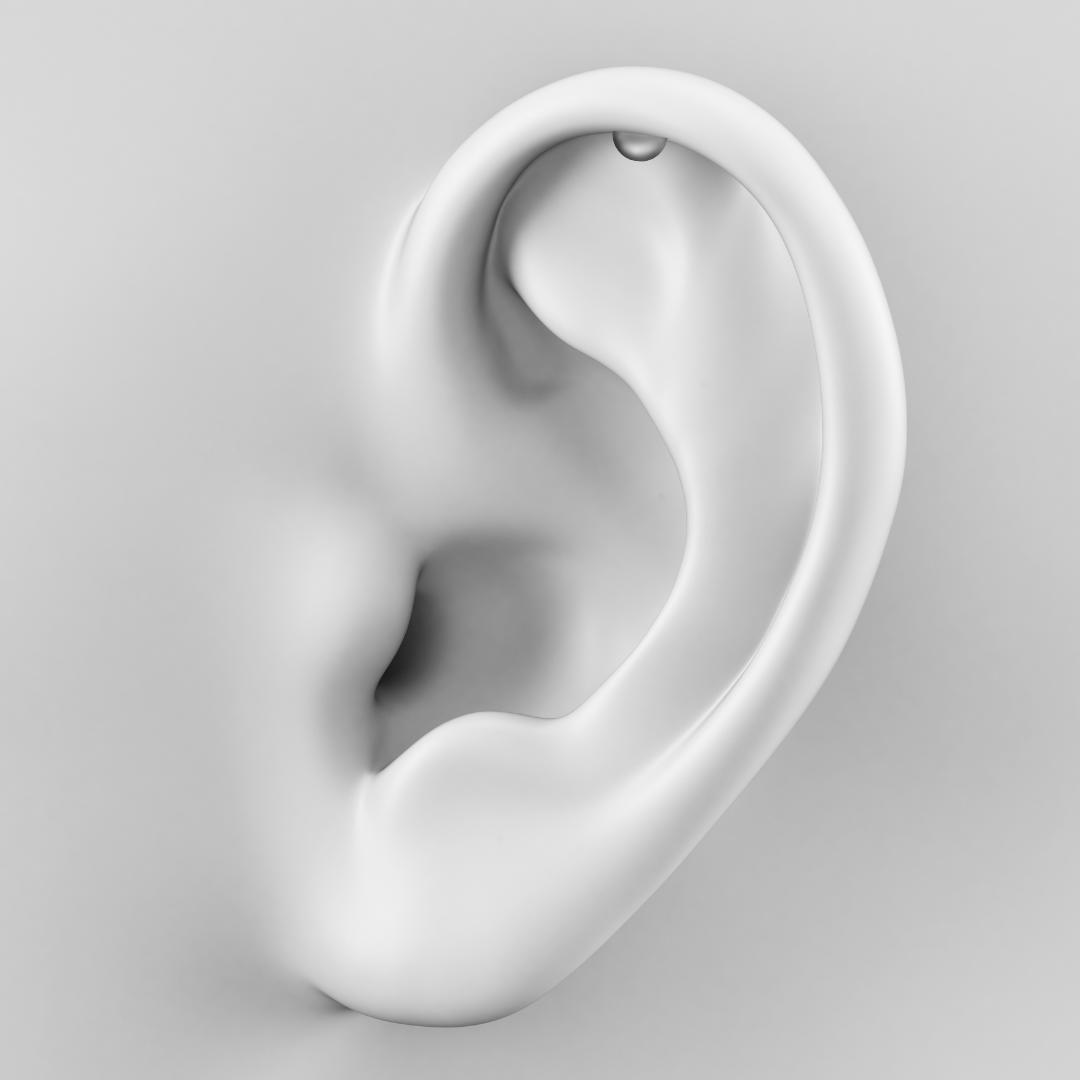
Hidden Helix
A single hole pierced through the cartilage at the top of the ear. The hole is typically obscured by the curved rim of the ear.
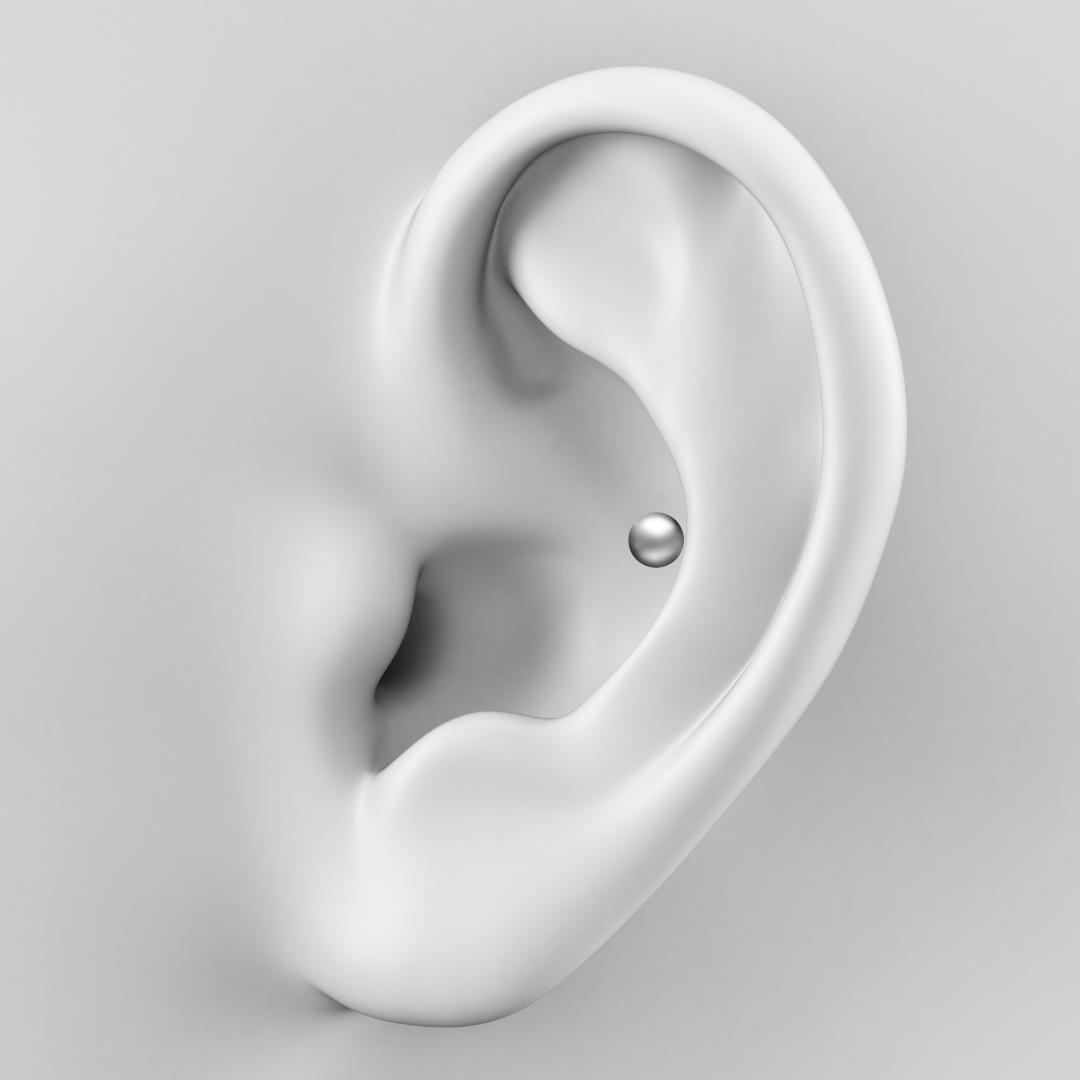
Conch
A single hole pierced through the middle section of the ear cartilage.
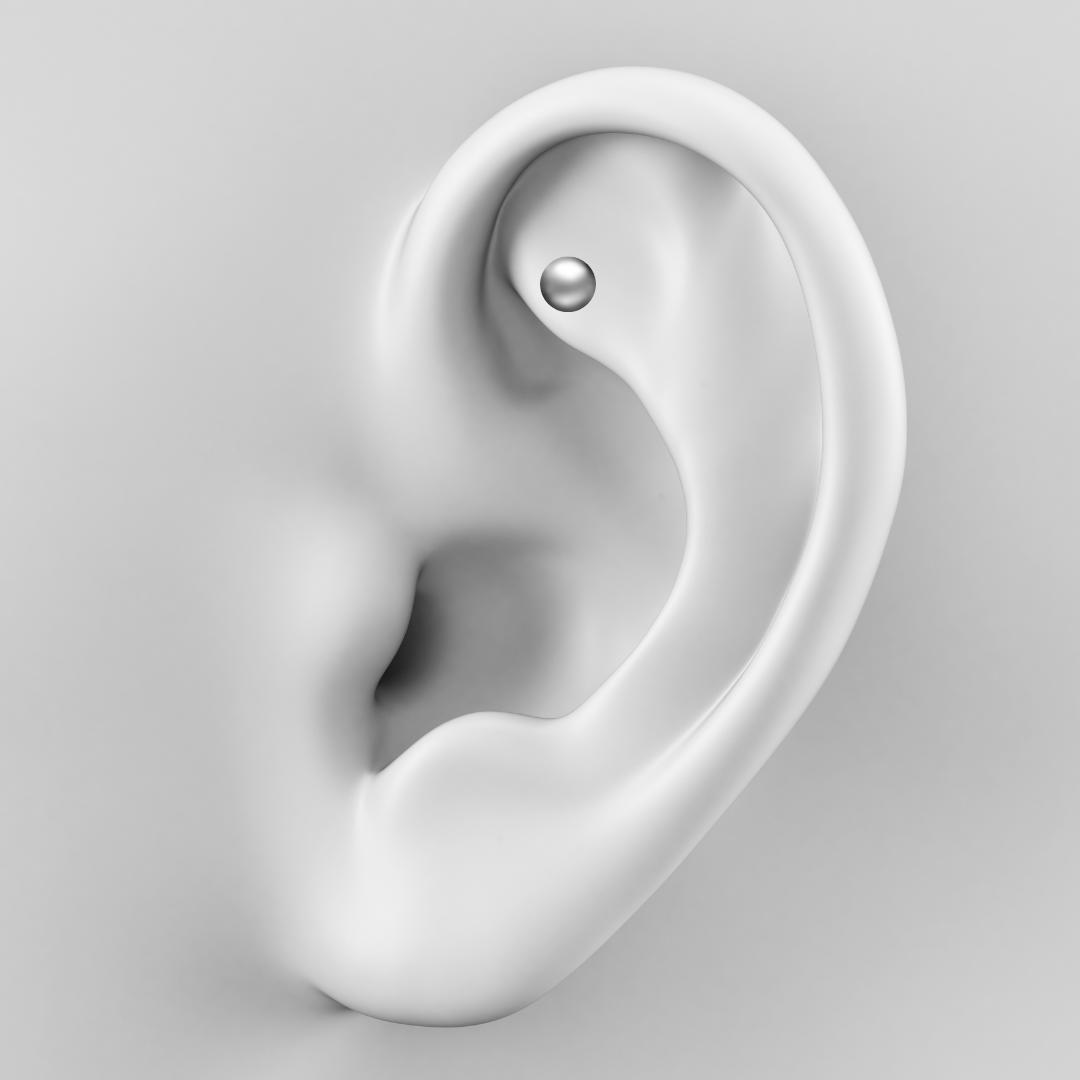
Rook
A single hole pierced through the uppermost ridge of the inner ear, just above the tragus.

Daith
A single hole pierced through the innermost cartilage fold of the ear.
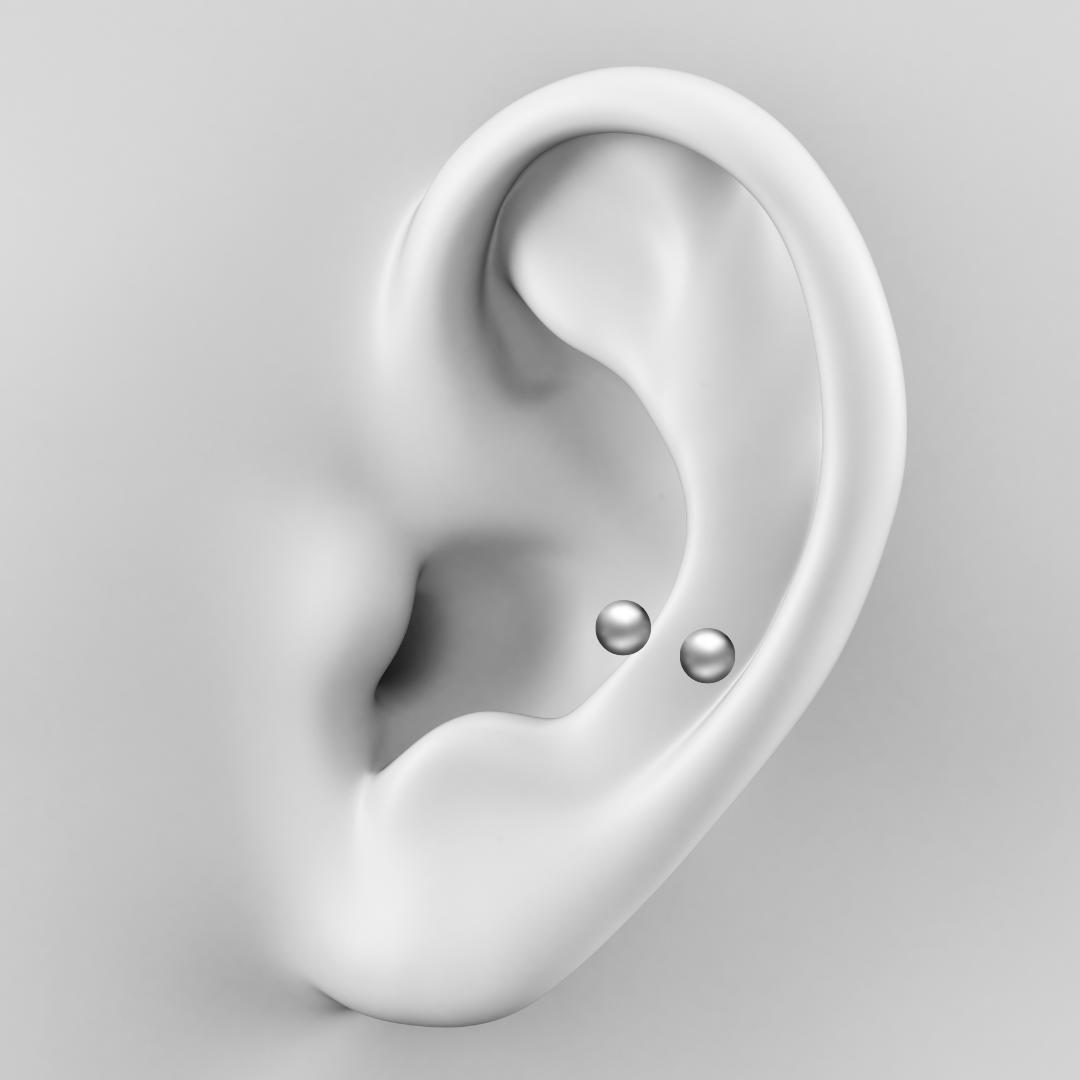
Snug
A single hole pierced horizontally through the inner rim of cartilage above the anti-tragus. Also referred to as an anti-helix piercing.
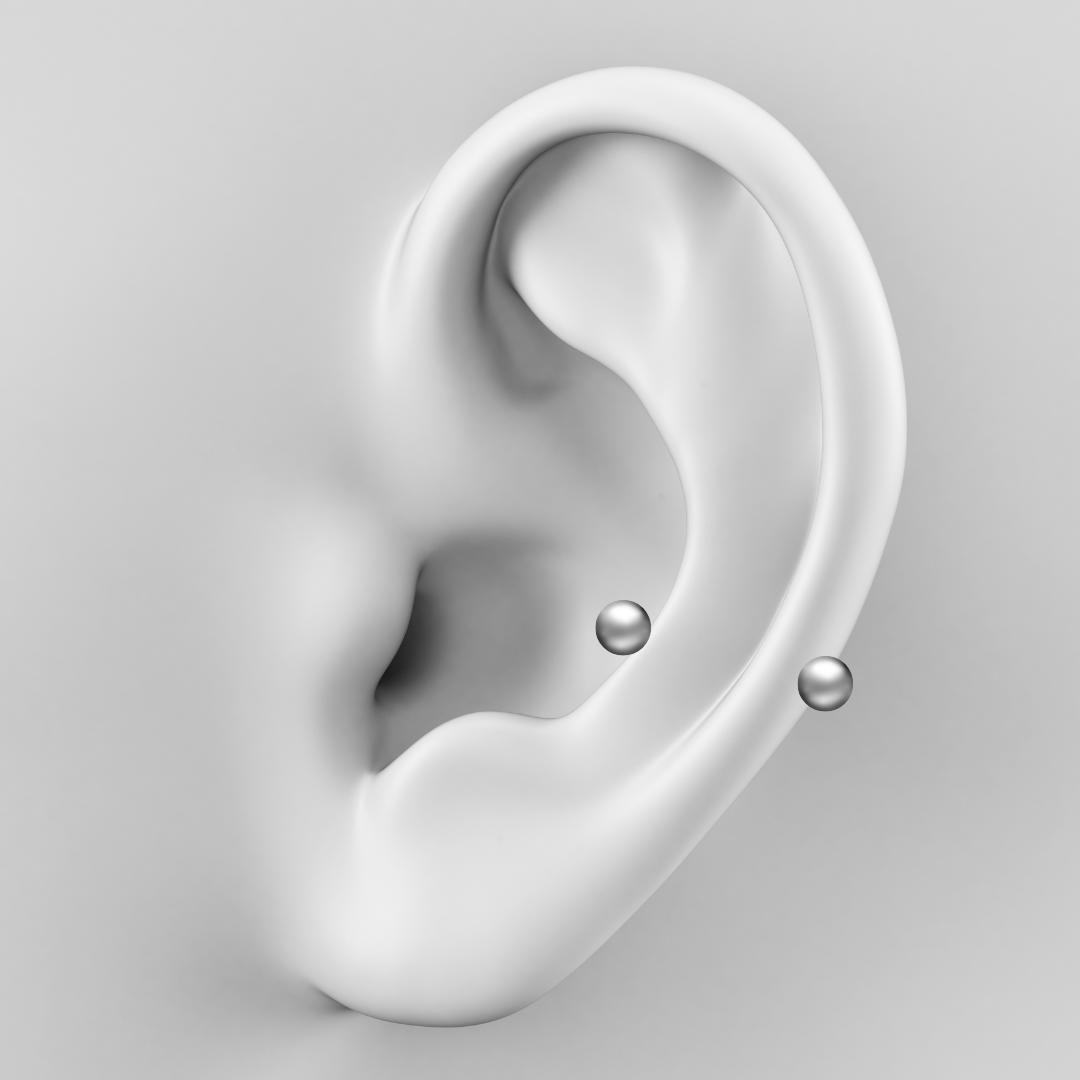
Ragnar
A single hole pierced through the area where the earlobe transitions into the helix, extending through the outer rim of the ear.
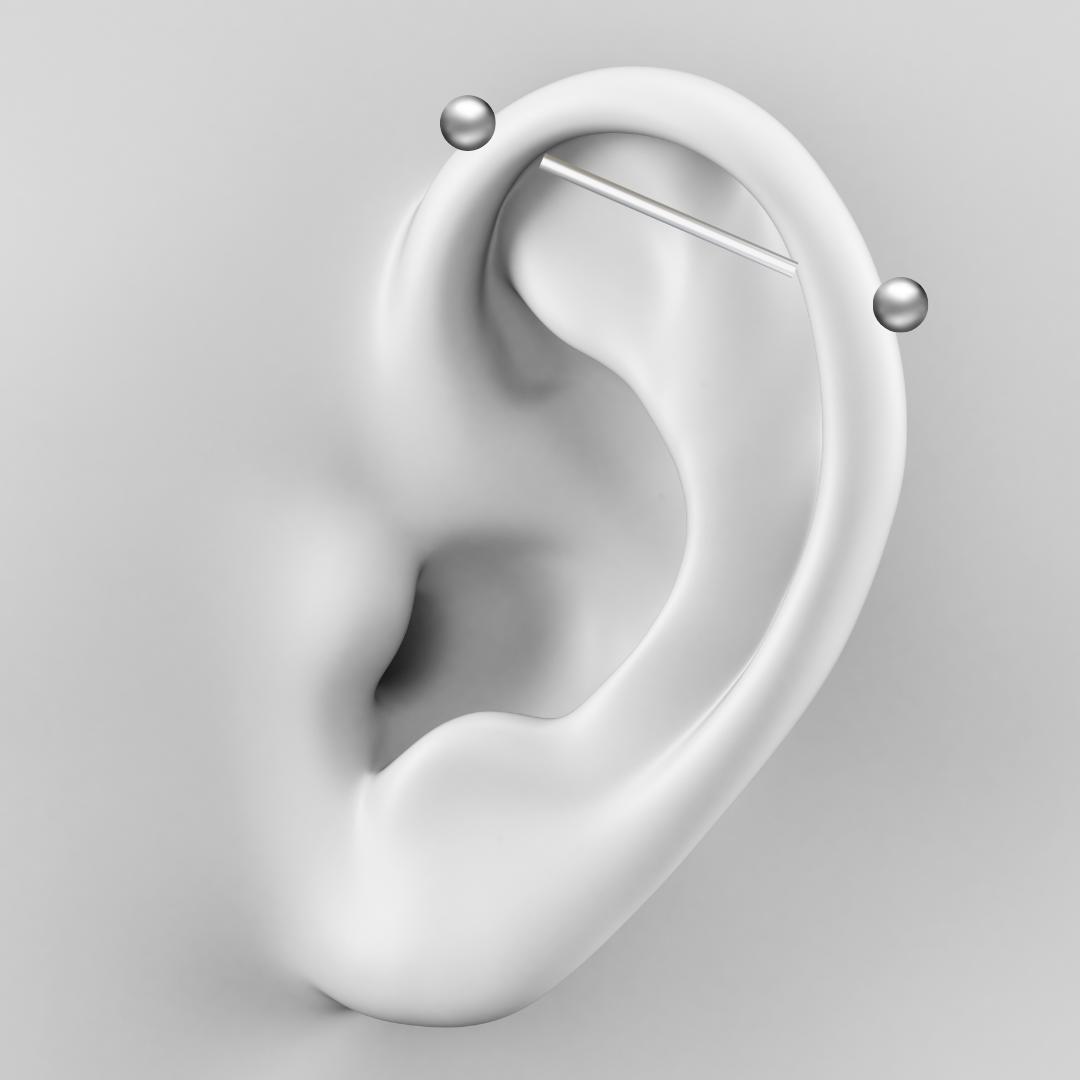
Industrial
Two holes pierced through the upper cartilage of the ear, connected by a single barbell piece of jewelry.